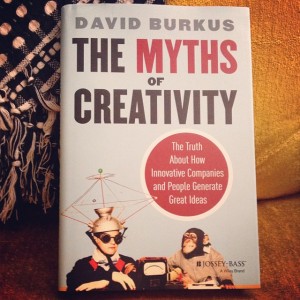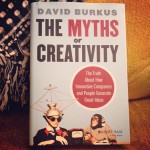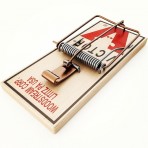I’m in the middle of reading The Myths of Creativity by David Burkus and I’ve just read a section that has hit me like a sucker punch to the gut and left me in a stupor of deep thought. I’m compelled to write. The portion of the book that I just read has a profound connection to one of the underlying reasons I write this blog, an experience I had with my Dad a few years ago.
You can read about what my Dad said about making connections in an older post, but I’ll summarize that story for the newcomers. My Dad used to be a college professor, author, and lecturer. While he was in the hospital a few years ago for a broken leg I found myself thinking a lot about an idea he would often teach his students about “making connections.” So I called him up and recorded our conversation while he explained the importance of making connections. I didn’t know at the time how important that phone call would eventually be because it would be one of the last times I spoke to him.
The essence of what my Dad taught was this, there is far too much to read, learn, and do in this life; we’ll never do all of it or be capable of absorbing it all in our lifetimes. It’s more important to learn fundamental principles of our experiences so that when we are placed in new and unfamiliar scenarios, situations where new problems need new answers, we have a tool kit of principles we are familiar with that we can rely on to help make connections and find new solutions.
 Shortly after that conversation my Dad passed away. That conversation has left a massive impression on me. Today, the principle my Dad taught so often of making connections has been reaffirmed when I read The Myths of Creativity.
Shortly after that conversation my Dad passed away. That conversation has left a massive impression on me. Today, the principle my Dad taught so often of making connections has been reaffirmed when I read The Myths of Creativity.
In chapter 3 of the book, Burkus refutes the myth that creative ideas and products are the result of a single author. He says, originality is a myth. To do so, he cites a number of great historical examples and criticizes the patent office for unintentionally promoting the originality myth.
But the most important part, that part the connects with the story about my Dad, comes from these few words about creativity:
Over a hundred years ago, the psychologist Alexander Bain argued that “new combinations [of ideas] grow out of elements already in the possession of the mind.” Decades later, another psychologist, Sarnoff Mednick, put forth the similar but further developed idea of “associative thinking.” To Mednick, creative thinking was simply the “forming of associative elements into new combinations which either meet specific requirements or are in some way useful.” All creative insight was drawn from the ability to connect previous thoughts inside the mind. Therefore, the more connections you could make, the more creative you were. “The greater the number of associations that an individual has to the requisite elements of a problem,” Mednick writes, “the greater the probability of his reaching a creative solution.”
I’ve sat here at my desk considering the impact of this statement for a while. I’ve felt for some time that my Dad’s idea of making connections was important and a lot of that I attributed simply to the fact that I loved my Dad. But this comment by Mednick, along with the entirety of the chapter that suggests power comes from recognizing the connections between all the variables of a problem, has firmly solidified for me that making connections is important. I highly recommend this book and will write about it next on the blog.
Making connections is what it’s all about when it comes to problem solving – so keep learning and reading so the right creative solutions we need can be found.







Marc, I saw this video and thought of your blog. It is a 30 minute video, but it is worth it to listen at least the first 15 minutes…also the last 10 minutes are really poignant for your search for creativity.
Search “John Cleese on Creativity” on youtube
http://youtu.be/AU5x1Ea7NjQ
John Cleese is a favorite of mine from when I first learned about Monty Python! Looking forward to watching. Thanks.